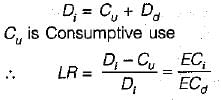Civil Engineering (CE) Exam > Civil Engineering (CE) Tests > GATE Civil Engineering (CE) 2025 Mock Test Series > Test: Reclamation & Waterlogging in Soil - Civil Engineering (CE) MCQ
Test: Reclamation & Waterlogging in Soil - Civil Engineering (CE) MCQ
Test Description
9 Questions MCQ Test GATE Civil Engineering (CE) 2025 Mock Test Series - Test: Reclamation & Waterlogging in Soil
Test: Reclamation & Waterlogging in Soil for Civil Engineering (CE) 2025 is part of GATE Civil Engineering (CE) 2025 Mock Test Series preparation. The Test: Reclamation & Waterlogging in Soil questions and answers have been
prepared according to the Civil Engineering (CE) exam syllabus.The Test: Reclamation & Waterlogging in Soil MCQs are made for Civil Engineering (CE) 2025 Exam. Find important
definitions, questions, notes, meanings, examples, exercises, MCQs and online tests for Test: Reclamation & Waterlogging in Soil below.
Solutions of Test: Reclamation & Waterlogging in Soil questions in English are available as part of our GATE Civil Engineering (CE) 2025 Mock Test Series for Civil Engineering (CE) & Test: Reclamation & Waterlogging in Soil solutions in
Hindi for GATE Civil Engineering (CE) 2025 Mock Test Series course. Download more important topics, notes, lectures and mock
test series for Civil Engineering (CE) Exam by signing up for free. Attempt Test: Reclamation & Waterlogging in Soil | 9 questions in 30 minutes | Mock test for Civil Engineering (CE) preparation | Free important questions MCQ to study GATE Civil Engineering (CE) 2025 Mock Test Series for Civil Engineering (CE) Exam | Download free PDF with solutions
Detailed Solution for Test: Reclamation & Waterlogging in Soil - Question 1
Test: Reclamation & Waterlogging in Soil - Question 2
Water-logging of cropped land leads to reduced crop yields, due to
Detailed Solution for Test: Reclamation & Waterlogging in Soil - Question 2
Test: Reclamation & Waterlogging in Soil - Question 3
Which one of the followings does not contribute to water logging?
Test: Reclamation & Waterlogging in Soil - Question 4
Which one of the followings, is not a remedial measure for water logging?
Test: Reclamation & Waterlogging in Soil - Question 6
A recently reclaimed alkaline soil should preferably be sown with a salt resistant crop, like
Detailed Solution for Test: Reclamation & Waterlogging in Soil - Question 6
Test: Reclamation & Waterlogging in Soil - Question 7
The method, which uses dead furrows on cropped farms for drainage of excess irrigation or rain water, is called:
Detailed Solution for Test: Reclamation & Waterlogging in Soil - Question 8
Detailed Solution for Test: Reclamation & Waterlogging in Soil - Question 9
|
31 docs|280 tests
|
Information about Test: Reclamation & Waterlogging in Soil Page
In this test you can find the Exam questions for Test: Reclamation & Waterlogging in Soil solved & explained in the simplest way possible.
Besides giving Questions and answers for Test: Reclamation & Waterlogging in Soil, EduRev gives you an ample number of Online tests for practice




















